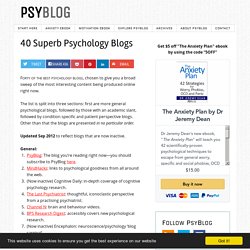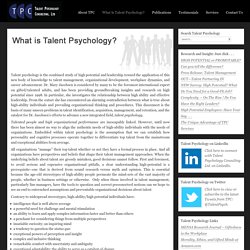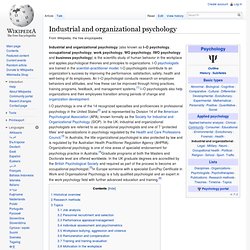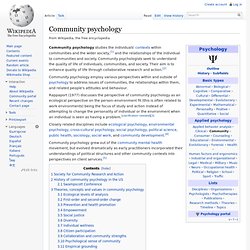

Core Self-Evaluations. Personality Disorders. Neuroscience. G Factor. Consciousness. Cognitive Psychology. Cognitive Distortions - The Fragility of Human Thinking. Positive Psychology. Psychological Odds & Ends. Encyclopedia of Psychology - Psychology Websites. Psychology Dictionary - Free Online Psychology Dictionary. Links to hundreds of Psychology studies running on the internet.
PSYCLINE: Your Guide to Psychology and Social Science Journals on the Web. Home. Psychlopedia. Behavioral and Brain Sciences. Psych Central - Resource Directory. Encyclopedia of Mental Disorders. PSYCHOLOGY — Major Schools of Thought in Psychology References... 40 Superb Psychology Blogs. Forty of the best psychology blogs, chosen to give you a broad sweep of the most interesting content being produced online right now.

The list is split into three sections: first are more general psychological blogs, followed by those with an academic slant, followed by condition specific and patient perspective blogs. Other than that the blogs are presented in no particular order. Updated Sep 2012 to reflect blogs that are now inactive. General: PsyBlog: The blog you’re reading right now—you should subscribe to PsyBlog here.MindHacks: links to psychological goodness from all around the web. More academic: Dr Petra Boynton: sex educator and academic exposes media misrepresentations of science.Babel’s Dawn: exploring the origins of language.The Neurocritic: anonymous, critical, mischievous.Advances in the History of Psychology: it’s all in the title.Deric Bounds’ MindBlog: biological view of the brain from an Emeritus Professor.
Condition specific/patient perspective blogs: Panic! 3 Buddhist beliefs that will soothe your soul (and make you much happier!) Society for Organizational Learning. Talent Psychology Consulting Ltd. » What is Talent Psychology? Talent psychology is the combined study of high potential and leadership toward the application of this new body of knowledge to talent management, organizational development, workplace dynamics, and career advancement.

Dr. Mary Jacobsen is considered by many to be the foremost international expert on gifted/talented adults, and has been providing groundbreaking insights and research on high potential since 1998. In particular, she investigates the relationship between high ability and effective leadership. From the outset she has encountered an alarming contradiction between what is true about high-ability individuals and prevailing organizational thinking and procedures. This disconnect is the basis of many unseen problems in talent identification, acquisition, management, and retention, and the catalyst for Dr. Talented people and high organizational performance are inescapably linked. All organizations “manage” their top talent whether or not they have a formal process in place. Industrial and organizational psychology.
Industrial and organizational psychology (also known as I–O psychology, occupational psychology, work psychology, WO psychology, IWO psychology and business psychology) is the scientific study of human behavior in the workplace and applies psychological theories and principles to organizations.

I-O psychologists are trained in the scientist–practitioner model. I-O psychologists contribute to an organization's success by improving the performance, satisfaction, safety, health and well-being of its employees. An I–O psychologist conducts research on employee behaviors and attitudes, and how these can be improved through hiring practices, training programs, feedback, and management systems.[1] I–O psychologists also help organizations and their employees transition among periods of change and organization development. Historical overview[edit] World War II brought in new problems that led to I–O Psychology's continued development.
Research methods[edit] Topics[edit] Community psychology. Community psychology studies the individuals' contexts within communities and the wider society,[1] and the relationships of the individual to communities and society.

Community psychologists seek to understand the quality of life of individuals, communities, and society. Their aim is to enhance quality of life through collaborative research and action.[2] Community psychology employ various perspectives within and outside of psychology to address issues of communities, the relationships within them, and related people's attitudes and behaviour. Rappaport (1977) discusses the perspective of community psychology as an ecological perspective on the person–environment fit (this is often related to work environments) being the focus of study and action instead of attempting to change the personality of individual or the environment when an individual is seen as having a problem.
[clarification needed][3] American Psychiatric Association.